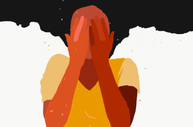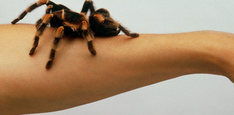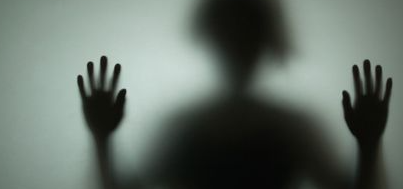Did you know that over 19 million Americans have a phobia?--halia pratt, 6th grade

It’s true, and if 19 million people in America have phobias, then consider what that looks like in California, or Oakland, or even OSA.
But first, what is a phobia? A phobia can be defined as many things, but it is important to know that it is an anxiety disorder. Jane Hopkins Medicine said that “a phobia is an uncontrollable, irrational, and lasting fear of a certain object or situation.”
In other words, a phobia is uncontrollable. Like a reflex test at the doctor’s office. Some reactions or symptoms of phobias can be feeling a sudden sense of fear when presented with your phobia, or doing everything in your power to avoid your phobia. For some people, it can include a physical reaction, which can feel almost like a panic attack, inducing sweat, rapid heartbeat, tight chest, and even trouble breathing.
A common cause for a phobia is a stressful situation. For example, a plane crash could give you a fear of flying. But genetic factors can give you a phobia, as well. This could include having a relative with an anxiety disorder, or even having an anxiety disorder yourself. In fact, people with OCD are more likely to get mysophobia, the fear of germs, than anyone else.
But first, what is a phobia? A phobia can be defined as many things, but it is important to know that it is an anxiety disorder. Jane Hopkins Medicine said that “a phobia is an uncontrollable, irrational, and lasting fear of a certain object or situation.”
In other words, a phobia is uncontrollable. Like a reflex test at the doctor’s office. Some reactions or symptoms of phobias can be feeling a sudden sense of fear when presented with your phobia, or doing everything in your power to avoid your phobia. For some people, it can include a physical reaction, which can feel almost like a panic attack, inducing sweat, rapid heartbeat, tight chest, and even trouble breathing.
A common cause for a phobia is a stressful situation. For example, a plane crash could give you a fear of flying. But genetic factors can give you a phobia, as well. This could include having a relative with an anxiety disorder, or even having an anxiety disorder yourself. In fact, people with OCD are more likely to get mysophobia, the fear of germs, than anyone else.
“It limits what you can do, and it’s not good to have so many fears,” said 7th grade Literary Arts student Zanthe Jones-Gerachis about her experience with phobias. Jones-Gerachis deals with fykiaphobia, the fear of seaweed, as well as galeophobia, the fear of sharks. Luckily for Jones-Gerachis, her phobias aren't a hindrance for everyday life. Beach vacations are another matter.
Similar to Jones-Gerachis, Literary Arts 8th grader Zoe Deetz has thalassophobia. This is a fear of the ocean, but more specifically deep waters and what's under them. “I like the way that jellyfish look but the idea of encountering one terrifies me, '' says Deetz. For Deetz, her phobia wasn't triggered by any stressful encounter with the ocean, rather it was just hearing scary sea stories and internal fear.
Similar to Jones-Gerachis, Literary Arts 8th grader Zoe Deetz has thalassophobia. This is a fear of the ocean, but more specifically deep waters and what's under them. “I like the way that jellyfish look but the idea of encountering one terrifies me, '' says Deetz. For Deetz, her phobia wasn't triggered by any stressful encounter with the ocean, rather it was just hearing scary sea stories and internal fear.

Jones-Gerachis and Deetz were both around the same age when they developed their phobias, but the source of fear was very different. For Jones-Gerachis, there was a traumatic event. She was swimming with a friend in a lake to a small island off the beach where the seaweed had yet to be cut down so there was seaweed everywhere underneath her. She It wasn't too far, but it was far enough that if something happened you would have to act very quickly. Jones-Gerachis had fallen a bit behind her friend but they were almost to the island so it didn't matter very much. They were almost there when she tried to stand but it was just a little too deep. Instead, her foot got tangled in a piece of the uncut seaweed and she was pulled under. Her friend was there just in time to pull her out of the water but she was under long enough to develop fykiaphobia,the fear of seaweed. As for Deetz, her phobia just manifested very similar to another student who was interviewed, fellow Lit Arts 8th grader, Calliope Dean.
Dean has acrophobia, which is the fear of heights. This is a very relatable fear even for people who don't have a fear of heights, as being high up can make most people nervous. Like Deetz, Dean's fear wasn’t triggered by any certain event. One story that Dean shared from around the time she started noticing her phobia was that she was at a circus arts and aerial class and she could never go on the high bars for trapeze because it made her very scared. The one time she did go on the high bar, she ended up falling so that definitely reinforced her fear.
Another student who was interviewed was 6th grader Ava Ford. Ford has ophidiophobia, which is the fear of snakes. Ford was with their friend who told them that there was a cool shoelace but it was actually a black and white striped snake and she picked it up and it snapped and bit them.
It is not necessary to experience a stressful or traumatic event to develop a phobia. However, if you do have a scary experience, a part of your brain called the amygdala will track the way you're feeling and what's happening in the environment around you and store it into another part of your brain. Like if you fall from a high place and survive, the next time you are in a high place your brain will recall the way you felt while you were falling and all of a sudden you will be reminded of that traumatic event and be scared.
As for developing a phobia without a traumatic event there is not a lot of research that has been done but sometimes a phobia like that can stem from a childhood fear. For example if you have a phobia of the dark that could come from being afraid of monsters in the shadows as a kid. Another thing that can make you develop phobias without scary events is anxiety. Having anxiety in the present or past can give you a phobia. Whether it’s from a a traumatic event or from internalized anxiety, childhood fears or even just a scary story, you never know how phobias can appear or how they will develop.
Dean has acrophobia, which is the fear of heights. This is a very relatable fear even for people who don't have a fear of heights, as being high up can make most people nervous. Like Deetz, Dean's fear wasn’t triggered by any certain event. One story that Dean shared from around the time she started noticing her phobia was that she was at a circus arts and aerial class and she could never go on the high bars for trapeze because it made her very scared. The one time she did go on the high bar, she ended up falling so that definitely reinforced her fear.
Another student who was interviewed was 6th grader Ava Ford. Ford has ophidiophobia, which is the fear of snakes. Ford was with their friend who told them that there was a cool shoelace but it was actually a black and white striped snake and she picked it up and it snapped and bit them.
It is not necessary to experience a stressful or traumatic event to develop a phobia. However, if you do have a scary experience, a part of your brain called the amygdala will track the way you're feeling and what's happening in the environment around you and store it into another part of your brain. Like if you fall from a high place and survive, the next time you are in a high place your brain will recall the way you felt while you were falling and all of a sudden you will be reminded of that traumatic event and be scared.
As for developing a phobia without a traumatic event there is not a lot of research that has been done but sometimes a phobia like that can stem from a childhood fear. For example if you have a phobia of the dark that could come from being afraid of monsters in the shadows as a kid. Another thing that can make you develop phobias without scary events is anxiety. Having anxiety in the present or past can give you a phobia. Whether it’s from a a traumatic event or from internalized anxiety, childhood fears or even just a scary story, you never know how phobias can appear or how they will develop.


